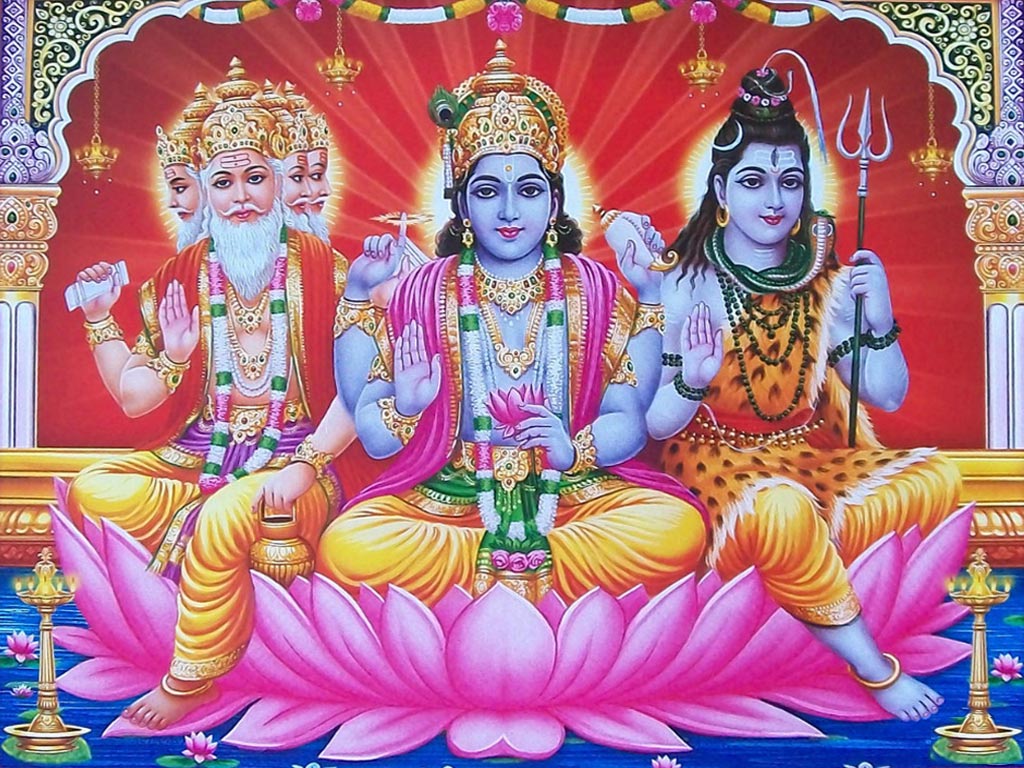You are using an out of date browser. It may not display this or other websites correctly.
You should upgrade or use an alternative browser.
You should upgrade or use an alternative browser.
Is Zend Avasta the base for Sanskrit. In both the grammer seems to be same?
- Thread starter KRC
- Start date
prasad1
Active member

Riddles from Rig Veda
For those who are interested in solving riddles, Rig Veda presents a gold mine. I propose to give here some of them, one at a time. Well, here is the first riddle. Agni is frequently called 'Apam Napat' in the Vedas. Literally it means, the grandson of the waters. The riddle is - why is he...
They are known only from their conjoined use as the scriptural language of Zoroastrianism, and the Avesta likewise serves as their namesake. Both are early Eastern Iranian languages within the Indo-Iranian language branch of the Indo-European language family. Its immediate ancestor was the Proto-Iranian language, a sister language to the Proto-Indo-Aryan language, with both having developed from the earlier Proto-Indo-Iranian language; as such, Old Avestan is quite close in both grammar and lexicon to Vedic Sanskrit, the oldest preserved Indo-Aryan language.
Old Avestan is closely related to Old Persian and largely agrees morphologically with Vedic Sanskrit. The old ancestor dialect of Pashto was close to the language of the Gathas.[

Avestan - Wikipedia
The Zend Avesta texts are the principal foundations of the Zoroastrian faith. This is one of the world’s oldest religions and was once among the most widespread as well.
This religion comes from ancient Persia, but in modern times many of its estimated 2.6 million believers live in India. There it is called Parsiism and those who practice it are known as Parsis or Parsees.
What is Zend Avesta? - Definition from Yogapedia
This definition explains the meaning of Zend Avesta and why it matters.
prasad1
Active member
In 1786, Sir William Jones, a British judge in Calcutta noticed that there were striking similarities in the vocabulary and grammar of Sanskrit, Persian, Greek, Latin, Celtic, and Gothic. This discovery resulted in the creation of a new field called comparative linguistics which led scholars to believe that all these languages were derived from a pre-Indo-European language that had its origins somewhere in Northern Europe, Central Asia, Southern Russia, or basically anywhere but India.
According to Romila Thapar, Indo-European speakers had central Asia as their habitat, and gradually over many centuries, they branched out in search of fresh pastures. According to her, it is these central Asian migrants who wrote the Avesta in Iran and Rig-Veda in India. According to Thapar, there is an argument that people who migrated to India were dissidents of the Old Iranian, hence you find a significant reversal of meaning in concepts common to both Avesta and Rig-Veda.

According to Romila Thapar, Indo-European speakers had central Asia as their habitat, and gradually over many centuries, they branched out in search of fresh pastures. According to her, it is these central Asian migrants who wrote the Avesta in Iran and Rig-Veda in India. According to Thapar, there is an argument that people who migrated to India were dissidents of the Old Iranian, hence you find a significant reversal of meaning in concepts common to both Avesta and Rig-Veda.

Avesta and Rig Veda - varnam
The Acorn recently had a post on the divergence of Persian and Indian cultures over values suggesting that Persians went for morals while Indians went for might. He quotes Rajesh Kochhar’s observations on the similarities between Avesta, the sacred texts of Zoroastrianism and Rig Veda. In this...
www.varnam.org
The period of Zoroaster is vaguely 500 BC, sort of matching Buddha and Thiruvalluvar , the Vedas predate that since Buddha rejected Vedic principles. So why would the older language of the Vedas spring from the language of Zoroastrians, doe not make sense.
பாரதியார் சொன்ன மாதிரி எல்லாம் சீமைப்புளுகு (I love the word he coined)
எல்லாம் வெளியில் இருந்து வந்தது உள்ள ஒன்றும் இல்லை
நாங்க ஒரு சூனியம் இதையே கேட்டுக் கேட்டு மண்டை சூடு ஏறுது.
பாரதியார் சொன்ன மாதிரி எல்லாம் சீமைப்புளுகு (I love the word he coined)
எல்லாம் வெளியில் இருந்து வந்தது உள்ள ஒன்றும் இல்லை
நாங்க ஒரு சூனியம் இதையே கேட்டுக் கேட்டு மண்டை சூடு ஏறுது.
When Romila Thapar's Theory of the Aryan Migration has been shown the door a couple of decades ago by the recent excavations as well as the researches by very well known people, - linguists, astronomers, archaeologists I cannot understand , why she should be quoted again and again for her outmoded pronouncements . Grow up people - Vedas are, and have been found to be much older than all the " religious " texts. They were oral and continued to be so for a very very long time, before the rishis responsible for it committed them to a written form - this makes us think that they are much more recent than they actually are.
Every day brings fresh confirmation of the ancientness of the Sanatana Dharma - we are also blinkered by the western thought processes quite a lot and need to get out of that.
The Zend Avesta does has deep roots which might spring from the Sanatana Dharma ; the language of the Parsis - Persian, having a lot of connections with the Old Samskrit, makes people wonder if the Vedas are derived from Persian !!
Every day brings fresh confirmation of the ancientness of the Sanatana Dharma - we are also blinkered by the western thought processes quite a lot and need to get out of that.
The Zend Avesta does has deep roots which might spring from the Sanatana Dharma ; the language of the Parsis - Persian, having a lot of connections with the Old Samskrit, makes people wonder if the Vedas are derived from Persian !!
Similar threads
- Replies
- 9
- Views
- 8K
- Replies
- 0
- Views
- 1K
- Replies
- 1
- Views
- 1K
- Replies
- 0
- Views
- 1K
